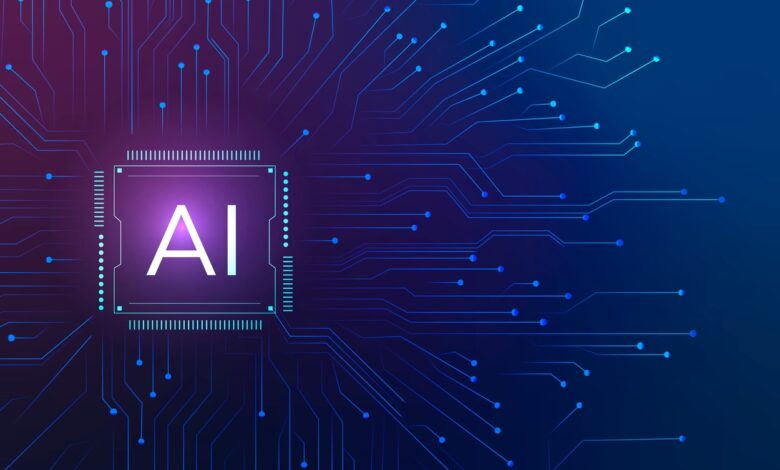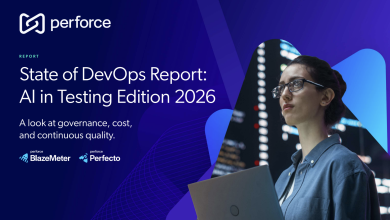
When the history of artificial intelligence (AI) is written, the open-source community will be recognised as one of its most influential forces. This collective of developers, researchers, and technologists have consistently been at the forefront of digital innovation, shaping some of the most widely used technologies today.
They’ve given us Linux, Apache, and Android, to name a few. They’ve also fuelled the rapid advancement of AI, with many of the models and frameworks that are driving today’s AI applications originating from open-source initiatives. It can be argued that without open-source collaboration, AI as we know it would not exist.
Yet, as AI becomes more deeply embedded in business and society, the open-source approach is running into new challenges. While it has always been a space for experimentation and unrestricted technological progress, the increasing importance of regulatory frameworks, commercial viability, and ethical considerations are forcing the community to adapt.
Regulation vs. Creative Freedom
For open-source AI developers, the appeal has always been the ability to explore without limitations. Their work is driven by curiosity and the pursuit of what’s technologically possible rather than compliance requirements or business constraints. However, AI’s widespread impact means that unregulated innovation is no longer an option.
Governments and regulatory bodies are now stepping in with policies that demand transparency, accountability, and compliance with laws like GDPR (The General Data Protection and Regulation). While these regulations are designed to protect users and ensure responsible AI deployment, they also create potential roadblocks for open-source projects. Developers who were once free to experiment without oversight, must now navigate a growing list of compliance requirements.
At the same time, businesses that want to integrate open-source AI models into their operations must ensure they meet industry standards. The question that remains is how to balance regulatory demands without stifling the creative freedom that has made open-source AI so powerful.
Commercialisation: The Open-Source Crossroads
Another layer of complexity arises when open-source AI transitions into commercial applications. Many projects begin as non-commercial initiatives, allowing developers to focus on technological advancement rather than profitability. However, for AI models to reach mainstream adoption, they often need to be monetised—whether through enterprise licensing, API access, or integration into proprietary platforms.
This transition from community-driven experimentation to business-ready technology can create tension. Some argue that commercial interests dilute the core values of open-source AI, while others see it as a necessary step for ensuring long-term sustainability. Regardless of perspective, one thing is clear: open-source AI must find a way to integrate with commercial ecosystems while maintaining its foundational principles of openness and collaboration.
The Ethical Considerations of Open-Source AI
Beyond regulation and commercial concerns, ethical challenges are shaping the future of open-source AI. Many within the community champion values such as fairness, transparency, and accessibility, yet defining what ethical AI looks like remains a complex issue.
AI models, particularly those trained on large datasets, can amplify biases, lack explainability, and raise privacy concerns. Without careful oversight, even well-intentioned open-source projects can inadvertently introduce risks. As AI becomes more influential in decision-making processes—from hiring practices to medical diagnoses—the need for clear ethical guidelines becomes more urgent.
AI researchers have emphasised the importance of embedding ethics into AI development. However, this is easier said than done. Ethical considerations are often subjective, and different stakeholders—whether developers, regulators, or businesses—may have conflicting views on what constitutes responsible AI.
Navigating the Future of Open-Source AI
As AI continues to evolve, so too must the open-source community’s approach to development. The challenges of regulation, ethics, and commercialisation will require new strategies that allow AI to remain open, adaptable, and responsibly governed.
For businesses adopting AI, ensuring proper governance and oversight will be key. Companies must establish roles dedicated to AI regulation and compliance, allowing developers to innovate without being burdened by legal complexities. This approach ensures that AI remains both transformative and trustworthy.
Despite these challenges, the open-source community’s influence on AI will remain profound. Its commitment to openness, collaboration, and pushing the boundaries of technology will continue to shape AI’s trajectory. The question is not whether open-source AI will adapt—it’s how it will define the future of AI in a world that demands greater accountability.



